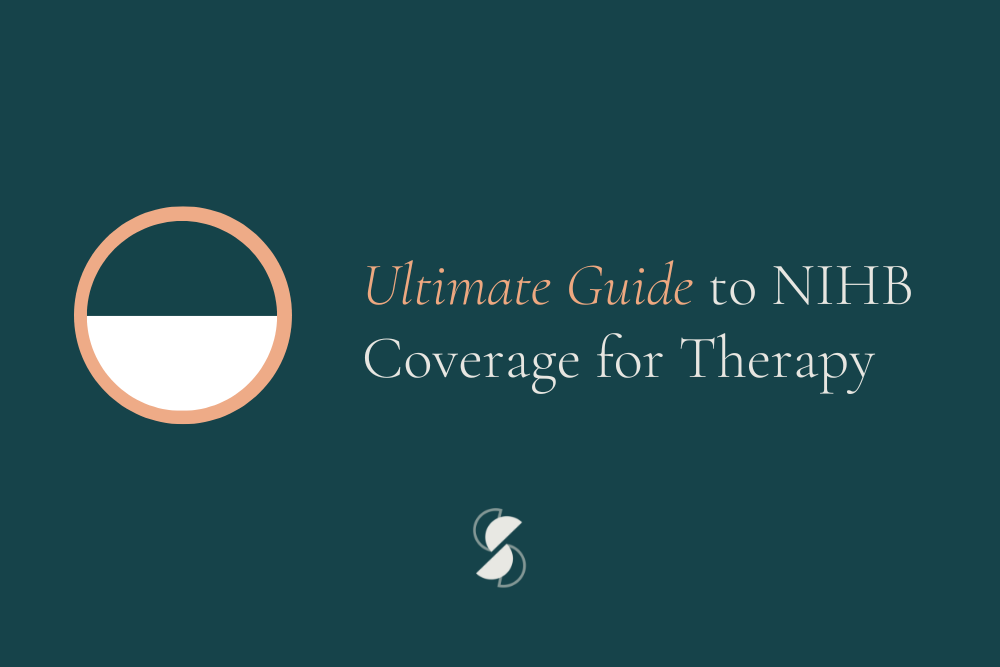Mastering Self-Regulation: Overcoming Anxiety and Cognitive Distortions

How self-regulation can help you kick your anxiety to the curb
For those who live with anxiety, IKYK. It’s exhausting!
There are a lot of symptoms and things about anxiety that are sometimes difficult to explain. Sometimes we have feelings like difficulty breathing, impending doom or feelings of panic, and sometimes, it can feel like there’s nothing you can do to prevent it. Learning how to master self-regulation can support with this.
Anxiety can create sensations that may make us feel out of our body and like we are no longer grounded in the moment. When we are not grounded in the moment, we become disconnected from our mind and body, leading to misinterpretations of what’s reality and what’s not. When this disconnection happens from our body, our brains will go into overdrive and create what we refer to as cognitive distortions. When we have these cognitive distortions, they may lead to feelings and thoughts we create for ourselves. For example, you might use personalization to assume your friend not texting you back immediately means they don’t want to talk to you and that you’re a bad friend. This way of thinking can lead to feeling like you’re not good enough. The cycle of anxiety will continue you to go, but again, this is where self-regulation tools can support you in reframing your thinking.
Below is a list of cognitive distortions that, if you have anxiety, you may relate to. If you relate to any of these, know you’re not alone. Talk to your therapist about how you can learn to catch these thinking patterns and even use self-regulation tools to assist with your feelings.
Signs of cognitive distortions:
- Mind Reader: Belief that you know what others are thinking
- Catastrophizing: Predicting the negative outcomes of your future
- Should or Must Ideas: Inflexible rules of how you or others should be
- Personalization: Thinking other people’s behaviour has to do with you
- Perfectionism: Belief that all mistakes are bad and need to be avoided
- Black and White Thinking: Seeing things are “good or bad” and using words like “always” or “never” and failing to see any grey areas
Here are some ways to help you self-regulate when feeling anxious:
- When you feel stressed, focus on what you can control and let go of what you cannot
- When you feel not good enough, Remind yourself of your strengths and acknowledge your efforts. Focus less on outcome and more on efforts. If needed, take small steps to improve things slowly.
- When you feel lonely call a friend or make plans with loved ones.
- When you feel anxious, focus on being present, take deep breaths to regulate your nervous system.
- When you feel insecure, move towards appreciating yourself. We often don’t give ourselves enough credit. Speak to yourself like you would your bestie.
- When you feel overwhelmed, write down what we need to focus on, and do one task at a time based on importance.
We know that anxiety can be difficult. That's why finding the right tools with support from a therapist can help you to manage these symptoms. Together, we can support you in learning about your anxiety triggers and find ways to help you self-regulate. Hope to see you in session!
This article was written by Rachel Costa during their time at Shift Collab.











.gif)






![Why You Need to Unfollow [@YourEx]](https://cdn.prod.website-files.com/625ec823c07cd8de32e1bae2/65c54e80b98a7d97ee026776_20240206T0910-707e5b7e-9802-42a3-8070-ba67b8dc33fd.jpeg)






![Summer Lovin' [not] Havin' a Blast](https://cdn.prod.website-files.com/625ec823c07cd8de32e1bae2/65c54e4341e7246ed4b3cbff_20240206T0910-fd1563e4-34d1-49e6-af59-9b95c717196a.jpeg)















































































